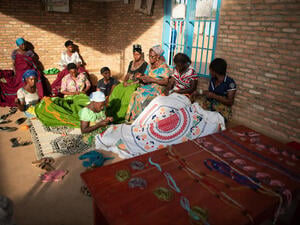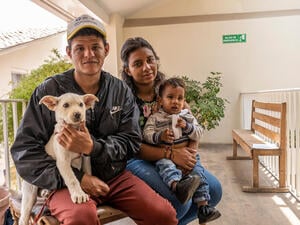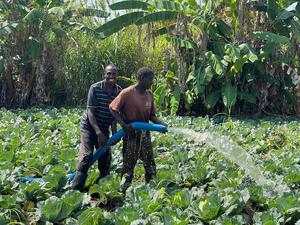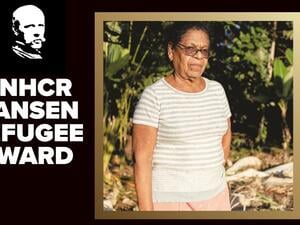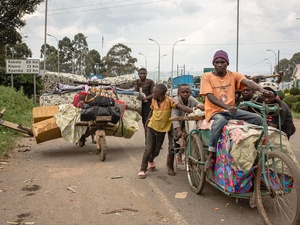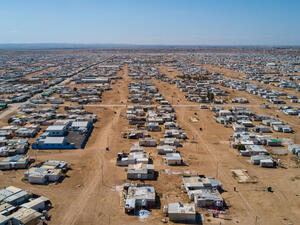UNHCR urges partners to help refugees to unlock their entrepreneurial potential
UNHCR urges partners to help refugees to unlock their entrepreneurial potential

Carmen Sánchez, a Colombian refugee in Ecuador, bakes bread that she sells locally at her home in Esmeraldas.
GENEVA — Refugees must be better supported to harness their business potential, become self-reliant and bring lasting benefits to their new communities, the UN Refugee Agency, UNHCR, said today.
In a new report, ‘Global roadmap for refugee entrepreneurship,’ UNHCR highlights the unique skills of refugees but the lack of suitable support for refugee-owned businesses to open and prosper. Challenges include legal impediments to business ownership, difficulties accessing finance, language barriers and a lack of market knowledge in their new communities.
“The potential of refugees is boundless,” said Sajjad Malik, UNHCR’s Director for the Division of Resilience and Solutions. “The skills many refugees develop – either before or after their flight -- can be a real boost to local economies. The missing piece is support to take that leap into entrepreneurship and sustain it.”
Entrepreneurial support can contribute to increased economic inclusion, reduced aid dependency, stronger social cohesion and better gender equality. It may take the form of language lessons, mentorship, seed capital and opportunities to network.
New partnerships can also increase opportunities. In Morocco, UNHCR partnered with the national employment agency and the national organization for cooperatives to open existing programmes to refugees. In Indonesia, UNHCR partnered with the International Labor Organization (ILO) and a local university to offer entrepreneurship training to refugees and their host community. In Kenya’s Kakuma-Kalobeyei refugee-hosting area, there are more than 2,500 refugee enterprises that employ and serve people in the region. UNHCR is collaborating with the International Finance Corporation to support these businesses and enhance private sector market opportunities for refugees and host communities in the region.
Refugees typically pursue entrepreneurship in places where unemployment is high and the economic situation is also bleak for nationals. Most often these ventures are in sectors with low entry barriers such as in food, small-scale trade, handicrafts and beauty services. Women refugees often pursue entrepreneurship for the flexibility to balance work with domestic roles.
The report found that most support for refugee entrepreneurs focused on the initial stage of setting up a business but left them exposed during the growth stage. Among the recommendations were tailored support for refugee entrepreneurs – especially blended finance programs of guarantees, debt funding and technical assistance – enhanced partnerships, policy changes and improved access to information.
ENDS
Notes to editors:
The Global Roadmap for Refugee Entrepreneurship provides strategic guidance for UNHCR and partners to support refugee entrepreneurship, reflecting on available opportunities and global best practices in the field. The roadmap is based on research findings from global and regional desk reviews in Europe, MENA, the Americas, East and Horn of Africa and the Great Lakes, West and Central Africa, Southern Africa, and Asia, with focus on 21 countries. Extensive consultation in collaboration with Impact Hub informed the roadmap involving primary data collection from 47 interviews and 10 consultation meetings with UNHCR country, regional, and global-level staff and partners, as well as with major development actors, and practitioners.
For more information on this topic, please contact:
- In Geneva, Yuko Narushima, [email protected], +41 79 863 7327
- In New York, Kat Mahoney, [email protected], +1 347 574 6552


